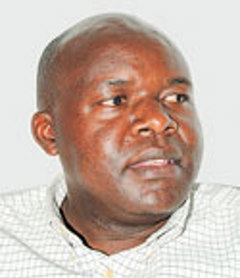Oirere, S.
Shem Oirere is a freelance journalist based in Nairobi, Kenya. He has spent more than 10 years covering various sectors of Africa’s economy, including construction, chemicals, energy and water, and has had numerous articles published in several international publications and websites. Previously, Mr. Oirere worked for Kenyan national newspapers, including the Daily Nation, Kenya Times and The People Daily, where he served in various capacities as correspondent, business reporter and sub-editor. He earned a higher degree in journalism from the London School of Journalism and is also a member of the Association of Business Executives (ABE).
Africa: Financing Africa’s petrochemical projects
The financing of Africa’s petrochemicals industry expansion remains a key issue for a continent on which governments and the private sector are grappling with an infrastructure financing deficit of $130 B–$170 B, despite some investors having found options to fund their petrochemical projects.
Africa: Civil unrest dampens South Sudan’s refining aspirations
South Sudan has one of the largest proven oil reserves in sub-Saharan Africa.
Africa: Troubled Nigerian refineries hamper petrochemicals growth
Nigeria’s petroleum industry has had its fair share of upheavals, ranging from insecurity that hampers upstream operations to low global oil prices that constrain midstream and downstream investments.
Africa: New maritime emissions rules to impact Africa’s downstream sector
As the 2020 deadline set by the International Maritime Organization (IMO) for the implementation of low-carbon shipping regulations inches closer, African refineries are still grappling with the question of how to finance the upgrading of oil processing plants to enable them to produce the required low-sulfur marine fuels and reduce reliance on noncompliant import fuels for powering the region’s shipping industry.
Africa: Challenges facing harmonized fuel standards in East Africa
East Africa developed coordinated fuel standards as early as January 2015.
Africa: The challenge of investing in Africa’s additional capacities
According to BP’s Statistical Review of <i>World Energy 2017</i>, Africa’s total crude oil production is approximately 7.9 MMbpd.
Africa: The rise in Africa’s oil storage infrastructure investments
The drop in crude oil prices, a growing transportation sector and an underperforming crude processing industry have created a strong demand for additional storage facilities in Africa, which is the preferred method of meeting fuel consumption requirements.
Global: The slow closing of Africa’s refining technology gap
Technology gaps in the crude oil refining sector of sub-Saharan Africa (SSA) are making it difficult for crude oil processing plants to achieve energy efficiency, produce high-quality products or adhere to international carbon emissions requirements.
Refining: Fuel processing vs. imports in East Africa: Will new refinery plans be realized?
Many analysts believe that Africa will remain a net importer of petroleum products for the foreseeable future. However, a few countries in the region have plans in place to build new refineries.
Refining: Uncertainty grips South Africa’s Clean Fuels Program
The planned upgrading of oil refineries in South Africa to produce Euro 5-specified fuels will likely take longer than initially anticipated.

- Jet fuel demand growth lags as air traffic exceeds pre-pandemic level 4/19
- Jet2.com to use SAF at London Stansted Airport 4/19
- Neste and New Jersey Natural Gas target reducing greenhouse gas emissions with Neste MY Renewable Diesel 4/19
- Cepsa and Evos join up for green methanol storage in Spain and the Netherlands 4/19
- Russia's Bashneft oil company installs anti-drone nets to protect refineries 4/19
- Hapag-Lloyd and Seaspan to retrofit five vessels to methanol propulsion 4/19





